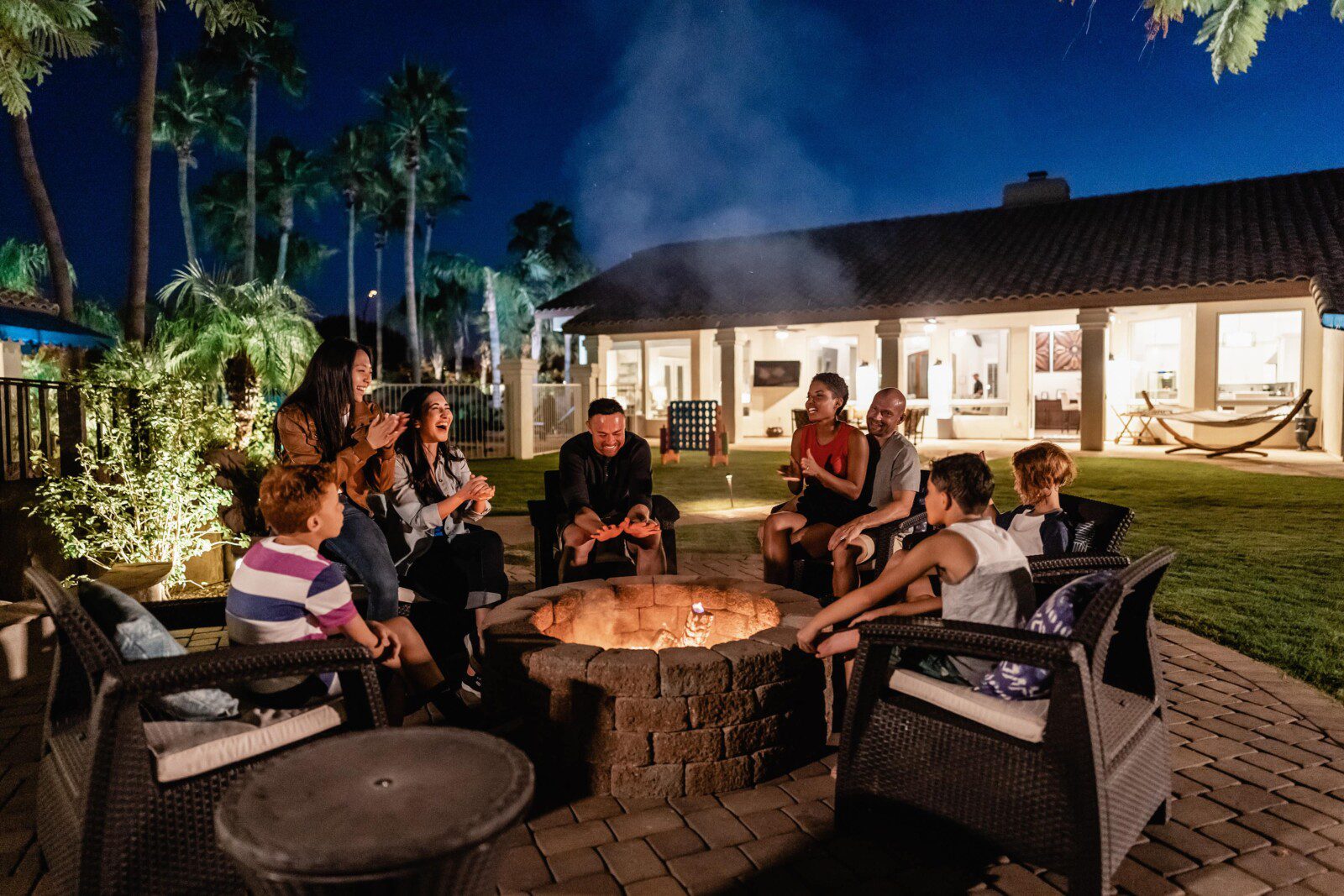When planning a vacation rental or getaway with family and friends, the conversation often starts with the number of bedrooms. How many people can sleep comfortably? Who gets the master suite? Yet, the social science of group stays tells us something surprising: bedrooms aren’t the real drivers of connection, memory-making, or satisfaction. Instead, shared spaces—living rooms, kitchens, patios, and game rooms—shape the heart of the group experience.
In this article, we’ll explore five research-backed insights from the social science of group stays, showing why shared spaces matter more than bedrooms and how this impacts the way we travel, host, and design vacation homes.
1. Human Connection Thrives in Communal Spaces
The social science of group stays emphasizes that people build deeper bonds in areas designed for togetherness. According to a study in the Journal of Environmental Psychology, environments that encourage face-to-face interactions strengthen social cohesion and group satisfaction (source).

Bedrooms are private and restorative, but they rarely provide opportunities for shared laughter, spontaneous conversations, or collective activities. It’s in the living room where friends gather for board games, at the dining table where stories unfold over dinner, and around the fire pit where memories are cemented.
Simply put, the social science of group stays shows that the quality of these shared moments defines the trip more than how comfortable the beds were.
2. Kitchens Are the New Living Rooms
Hospitality researchers often highlight the “magnet effect” of kitchens. The social science of group stays explains why kitchens hold such power: food preparation and dining are universal bonding rituals. In fact, anthropologists argue that communal eating has been central to human connection since prehistoric times (source).


Vacation rentals that offer large, open kitchens or outdoor cooking stations allow groups to engage in collaborative activities. Guests chop vegetables together, share recipes, and enjoy the sensory experience of cooking. Bedrooms, by contrast, serve only individual needs.
The social science of group stays confirms that when people cook and eat as a group, they report greater satisfaction and stronger memories of their trip.
3. Shared Spaces Reduce Stress and Foster Belonging
Another important finding in the social science of group stays is that shared spaces help reduce stress and create a sense of belonging. Psychologists note that humans are hardwired for social interaction, and environments that support group activity can lower cortisol levels (the stress hormone).

Bedrooms often isolate individuals, whereas open spaces allow for collaboration, playful interaction, and the comfort of “being together even in silence.” This sense of communal belonging makes vacations more restorative. A simple activity like sitting by the pool or lounging in a spacious den can give people the emotional recharge they need.
In the social science of group stays, shared spaces act as emotional anchors—something bedrooms cannot replicate.
4. Group Activities Define the Memory of the Trip
The social science of group stays makes clear that people don’t remember trips by counting beds. They remember the karaoke session in the living room, the movie marathon in the home theater, or the late-night marshmallow roasting under the stars.
Research on collective memory shows that group experiences create stronger, more lasting recollections than solitary activities (source). Bedrooms are practical necessities, but they rarely form the highlight reel of a vacation.

By designing or choosing rentals with game rooms, outdoor lounges, or large dining areas, hosts and travelers align with what the social science of group stays says truly matters: shared experiences over shared sleeping arrangements.
5. The Shift in Travel Priorities
Airbnb and Vrbo booking trends reflect the social science of group stays in action. Searches increasingly prioritize large living areas, open kitchens, and outdoor amenities over the exact number of bedrooms (source).
Guests often request “a place where everyone can hang out together” rather than just “a house with five bedrooms.” This shows how the social expectation of travel has shifted. Bedrooms are functional, but communal spaces drive the joy of group getaways.

The social science of group stays predicts that this trend will continue, with shared experiences becoming the primary selling point of vacation rentals and hotels alike.
What This Means for Travelers and Hosts
For travelers, the lesson is simple: when booking a property, look beyond the bedroom count. Ask:
-
Is there a living room big enough for everyone?
-
Does the kitchen allow for group cooking?
-
Are there outdoor or entertainment spaces for group bonding?
For hosts, the social science of group stays highlights the importance of investing in communal areas. Upgrading your deck, expanding your dining table, or adding a fire pit can significantly increase guest satisfaction and reviews—often more than adding another bedroom would.
Conclusion
The social science of group stays proves that bedrooms, while necessary, aren’t the essence of group travel. Shared spaces carry the emotional weight, offering the setting for laughter, storytelling, and bonding. Whether it’s a cozy living room, an open kitchen, or a starlit patio, these spaces create the memories that last long after checkout.
Next time you plan or host a group trip, remember what the social science of group stays teaches us: it’s not where you sleep that matters most—it’s where you gather.
